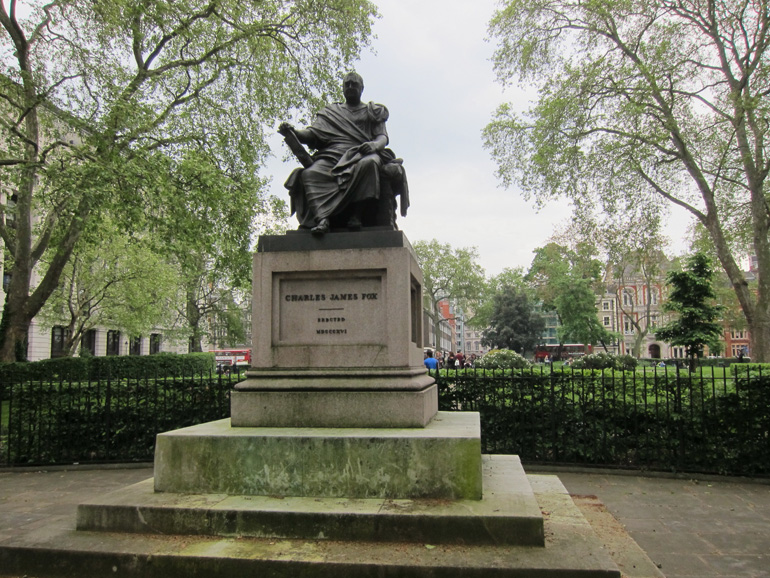
Yesterday, I abandoned myself to the uttermost dissolution. I had a long lunch with Ray Soleil, and then we watched two old movies — and, just like that, it was time for dinner! The two movies that we watched were both in black-and-white, made within three years of one another, and shot heavily (exclusively, in one case) on location in Manhattan. They were also, both of them, odd fish. “Offbeat” would have been the non-committal judgment of the time. The one was not quite a comedy, and the other not quite a horror movie.
They were Love With the Proper Stranger and Seconds, respectively. I saw Seconds when it was new, in 1966. Several times. It freaked me out completely. You may know the story. A middle-aged banker (John Randolph) gets mysterious phone calls from a college friend whom he knows to be dead. A stranger tails him through Grand Central Terminal — this is the opening scene — and hands him a slip of paper with an address written on it. Eventually, he goes to the address, in pursuit of a new life as a “reborn.” With a dispatch that brings Ray Bradbury to mind, the banker is drugged, set up for blackmail, and forced to sign his estate over to “the company,” which, in addition to rejuvenating him with extensive plastic surgery (as Ray said, viewers were more naive in the Sixties, and would have believed that this was possible), will stage the banker’s death (with help from “cadaver procurement services”) and see that his wife and daughter were comfortably provided for. After a few fade-outs, the banker emerges as Rock Hudson, and is shipped off to California for his new life. If you don’t know the story, skip to the end of the paragraph, while I wrap up this summary. The new life doesn’t take; notwithstanding the charms of Salome Jens, Rock Hudson is even more bored and unsettled than John Randolph was. He winds up, of course, in “CPS.”
John Frankenheimer directed Seconds, and the movie shares a lot, from the auteurist point of view, with The Manchurian Candidate, made a few years earlier and also featuring the ghoulishly genial Khigh Dhiegh, born Kenneth Dickerson in Spring Lake, New Jersey, in 1910. (Isn’t IMDb great? But how do you say “Khigh Dhiegh”? Ah. “Ky Dee.” If you say so.) In many anxious scenes, Randolph or Hudson sits in a corner of the foreground, eyes moving dramatically, while someone else talks in the background. In Randoph’s case, the background figure is usually explaining the reborn program. In Hudson’s best scene, the standing figure is Frances Reid, playing the banker’s widow, who has, of course, no idea that the man to whom she is describing the emptiness of her marriage is in fact her husband. John Randolph, who had a far more interesting life than the banker — born Emanuel Cohen in the Bronx, five years after Khigh Dhiegh and blacklisted after pleading the Fifth Amendment bofore the HUAC — is hands down the better actor. But Rock Hudson’s woodenness is relieved by a discomfiture that is not at all out of place. Seconds is an occasion for Roy Scherer, Jr, born in Winnetka in 1925, and a closeted homosexual who would be felled by AIDS, to put the phoniness of his life in front of the camera, and he makes the most of the opportunity.
I hadn’t seen Love With the Proper Stranger before. Ray had “sold” it to me at lunch a while back, and, unable to rent a copy, I’d bought one. Robert Mulligan’s film captures a moment that I remember well, although I didn’t know that it was a moment at the time; nor did I know any big, possessive Italian families. There was a feeling, in the early Sixties, that New York City was simply no longer “modern.” Most of its buildings looked ancient, no matter how few decades back they’d been built, and most of its citizens were immured in powerful networks of traditional families. California was modern, Denver was modern, but New York was old-hat. And the young people of New York restlessly decided to do something about it, although nothing that would involve going without a necktie or a headscarf.
There’s a glancing, anticlimatic quality to the story. The dramatic event has already taken place, and one of the participants has almost forgotten about it. Now, at the start of the film, Angie Rossini is telling Rocky Papasano, a trumpeter who’s milling about in a casting call, that she’s pregnant. She needs the name of “a doctor.” Is this funny? It is, sort of. Natalie Wood is very cute, an adorable damsel in distress, not least because she never whines — not in front of Rocky, anyway. Steve McQueen is peculiarly inarticulate; in lieu of speech, he vibrates and rumbles and looks down to the ground as if in search of clues about what to do next. That’s kind of adorable, too, especially once you know that he’s going to do the decent thing. And then, after the grim enocunter with the abortionist — a scene that ever right-to-lifer ought to be obliged to re-enact — he does the right thing, although it takes a little while. In the course of scraping up the money for the “doctor,” the young people spend enough time together to get the idea that their marriage would not be tantamount to going back to the old ways and living with a dozen relatives underfoot. Angie’s little apartment is in Greenwich Village, but it’s bright and well-ordered, unlike the overupholstered layrinth that her brothers share with her mother, and less unlike the breezily shabby flat where Rocky is camping out with Barbie (Edie Adams), a Broadway babe.
The movie’s goofy finale nails it to its time. In a last-ditch effort to win Angie, Rocky apes the odball, still unfamiliar, faintly ridiculous gambit of behaving like a sign-carrying protestor. In the middle of the day, he stands on 34th Street, waiting for Angie’s lunch break at Macy’s. “Better Wed Than Dead,” his sign reads. As the camera pulls back from a throng of New Yorkers, our eyes are caught by the hugging, kissing younsters whose understatement and light touch promises to freshen up the place.
***
On Friday, I saw My Week With Marilyn, and it’s a very good movie in spite of the fact that, the more you think about it afterward, the less it seems to have to do with Marilyn Monroe. Michelle Williams is truly captivating in the role of Marilyn, but that’s just another way of saying that she upstages the actual actress whose films we know so well. She makes you forget that Marilyn Monroe was not a genuinely voluptuous woman. She could put on the pose and pretend, but that’s what made her a comedienne: you got to laugh with her at the pose. Naturally, she was restless and edgy. She was not incapable of relaxation but she was never (on film) self-possessed, composed. There was a rigid quality about her being at rest, as if she were afraid to muss a curl of her hair or the drape of her dress. Michelle Williams, in contrast, can do almost anything without moving. She is always centered so deeply in herself that she seems in possession of dangerous special powers. Marilyn’s powers were strictly WYSIWYG. What’s hard for Michelle Williams to pull off is Marilyn’s incompetence as an actress. Her performance hints at deep psychic wounds, but Marilyn Monroe, on the evidence, was a noodle who needed a very firm dancing partner in order to cross a room. Michelle Williams makes Marilyn Monroe a million times more glamorous than she really was.
But that’s all right, because My Week With Marilyn is not about Marilyn Monroe but about the guy who had the week with her. This would be Colin Clark, the very well-brought-up son of Sir Kenneth Clark, of Civilisation fame. Colin Clark was (is) Edith Wharton’s only godson; she left him half of her library. How’s that for an ordinary bloke who gets lucky? The point of it all is that Colin is no ordinary bloke, and luck (aside from the luck of birth) has nothing to do with the case. Clark works his way into the production of a motion picture by dint of his excellent resources. He has magnificent, yea, regal connections to call upon as a gofer. Instead of belaboring Clark’s advantages, the movie exploits them as magic tricks. Eddie Redmayne is perfect in the part, because he has a constitutional reluctance to call attention to himself that’s beautifully harnessed to an ability to put himself in the center of any scene. The vulgar word is “class.” His Clark has so much class that we wonder Marilyn Monroe didn’t write a memoir entitled, My Week With Colin. Well, we know why Marilyn didn’t. But we’re inclined to believe that Michelle Williams might.
The fun of My Week With Marilyn is Kenneth Branagh’s recreation of Laurence Olivier, which is as spot-on as his costar’s is (no less delightfully) wide of the mark. Mr Branagh has been haunted by Olivier throughout his career, and we can only hope that it will be an equally long one. The difficulty is that he is nowhere near the insidious ham that Olivier was, nor does he radiate the pixie-ish suggestion that was implicit in Olivier’s slightest gesture: Olivier was inconceivable offscreen. He might as well have been made of celluloid, so embodied in film is he. Not Mr Branagh. Kenneth Branagh is a great actor, but he is meatily mortal.
In the end, My Week With Marilyn is one of the better movies about the movies. Superficially about the making of a movie, it is in fact about its actual stars. What does Judi Dench “do” with Sybil Thorndike? What do they all “do,” these impersonators? What do we do, when we watch them? What we do is say “Yes.” When Marilyn, about to be mobbed by the kitchen staff at Windsor Castle — to which Colin has gained admittance because his godfather (Derek Jacobi) is the royal librarian — asks “Shall I be her?”, we don’t wait for Colin to answer. We say, “Yes, Michelle. Be her. Be Marilyn.” And then, right before our eyes, she does.


















